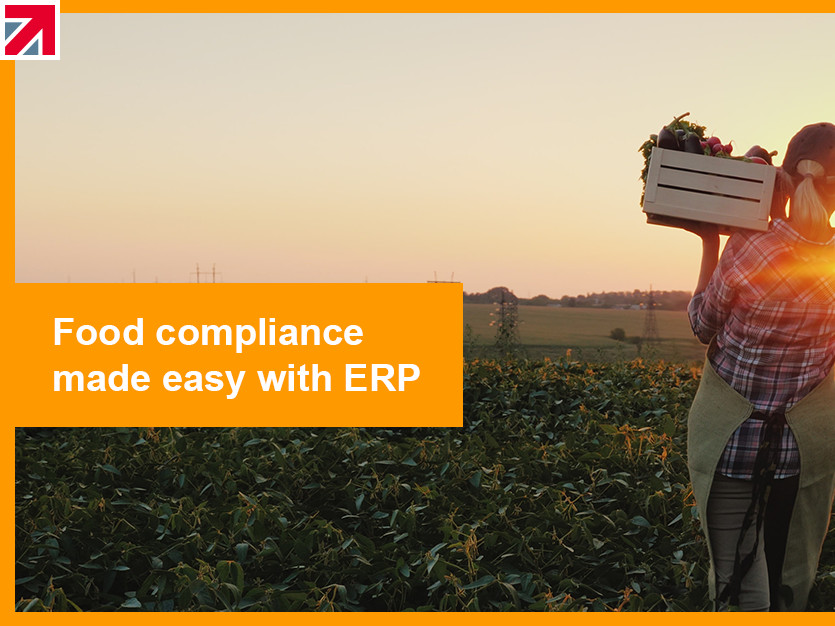As we begin the new year, many of us have stocked our fridges and fruit bowls with fresh, nutritious foods such as fruits, vegetables, and high-protein items, ready to kick-start healthier habits. But these perishable goods require careful management to prevent waste. We need to consume them efficiently before they spoil, which often means more shopping trips to stay on top of freshness.
This approach to food management applies not only in our personal lives but also at a much larger scale in the food manufacturing and distribution sectors. In fact, the food industry faces the same challenges, only on a greater scale. With vast amounts of food being produced, transported and sold, effective management is essential to reduce waste and improve efficiency.
The Food Industry’s Waste Problem
Did you know that in the UK alone, approximately 1.9 million tonnes of food are wasted each year? This isn’t just an economic issue, but also a social and ethical dilemma. With hunger affecting many parts of the world, the fact that perfectly edible food goes to waste is a pressing concern.
So, how can food producers, retailers, and manufacturers make a positive impact?
1. Local Sourcing
Supporting local suppliers has been a successful strategy in the food industry. By sourcing food from nearby producers, the need for long-distance transportation is reduced, lowering carbon footprints and keeping food fresher. Local sourcing not only helps with sustainability but also gives retailers a competitive edge, as consumers increasingly demand fresher, "less travelled" food.
2. Technology in Logistics
Advancements in technology have greatly improved logistics and transportation in the food industry. Automated systems and sensors can now monitor temperature, humidity, and even the status of individual food items in transit. This ensures better handling, reduces spoilage, and prevents the costly mistakes that come from misdirected or improperly stored food.
3. Improved Logistics Networks
Creating more strategic hub networks for sorting and distributing food has a significant impact on reducing waste. By ensuring that the right quantities of food reach their destinations efficiently, companies can reduce transport costs and minimise waste due to excess stock or incorrect deliveries.
4. Changing Consumer Perception
One key issue is the perception of what constitutes "acceptable" food. Reports show that in Europe, around a third of fruit and vegetables are discarded because they don’t meet cosmetic standards, with items often labelled "too ugly to sell." However, both consumers and food retailers need to embrace the natural form of produce, and the industry should find ways to make use of these so-called "imperfect" goods.
5. Education and Labelling
Education plays a critical role in reducing food waste. By providing consumers with more information on how to creatively use leftovers, as well as clear labelling on "best before" dates, we can reduce confusion and waste. With proper education, people will be more likely to understand that food doesn't need to be discarded the moment it passes its "best before" date.
How ERP Software Supports Food Waste Reduction
One of the most effective ways food producers and manufacturers can reduce waste and improve operational efficiency is by leveraging technology. Well-configured Enterprise Resource Planning (ERP) systems provide transparency and control, enabling businesses to manage the collection, storage, and movement of food products with precision.
In the food industry, an ERP system can:
-Track inventory in real time to ensure that products are used before they spoil.
-Streamline logistics to ensure that the right amount of food reaches the right places on time, reducing surplus and waste.
-Facilitate better planning and forecasting to prevent overproduction and minimise food that goes unsold.
-For example, WinMan ERP helps the food industry by optimising resource management, tracking perishable goods, and providing insights to reduce waste and improve profitability.
If you’re ready to make a positive change in your operations and reduce waste, it’s time to consider how ERP solutions like WinMan can help you optimise your supply chain.
Contact us today to learn how WinMan ERP can help transform your operations and create more opportunities for productivity and profitability.
Find out more about WinMan ERP on their member profile page here
Member-created content 9 months ago | From members
